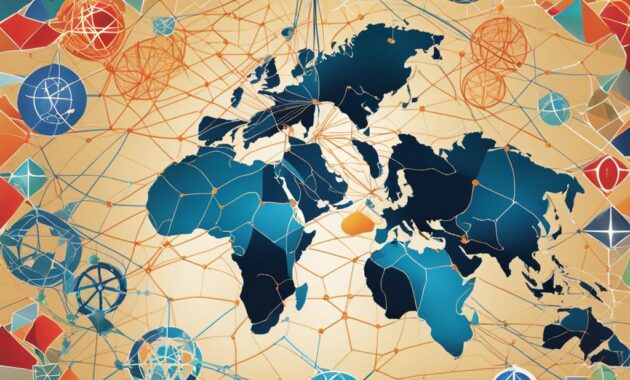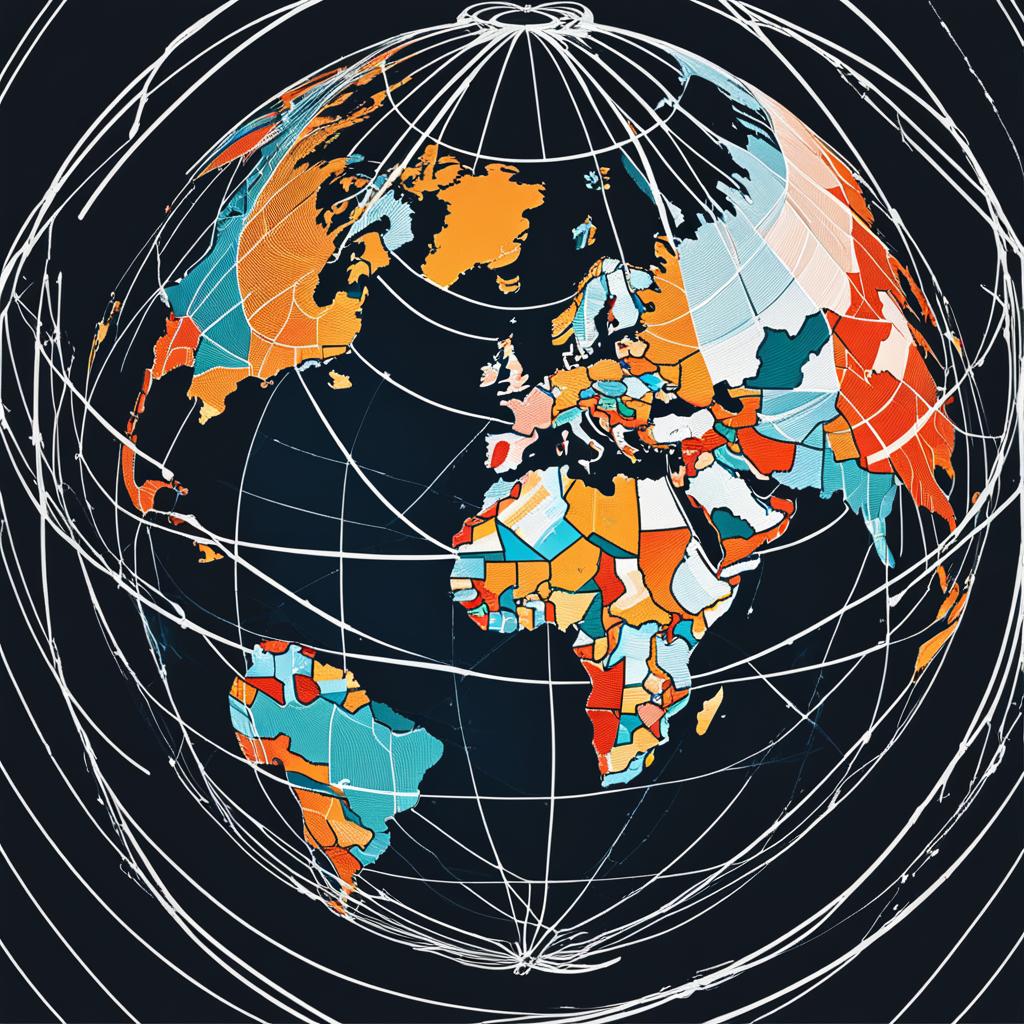As we navigate the complex and interconnected world of international relations, it is crucial to understand the significance of economic diplomacy. At the heart of this concept lies the formation and maintenance of global economic alliances. These alliances bring together countries with shared economic goals and interests, fostering trade agreements and promoting international relations.
Through these alliances, participating countries are able to negotiate and establish agreements regarding trade, investment, and economic integration. This cooperation has a significant impact on the global economy and shapes the political relationships between participating nations.
In the following sections, we will explore the intricacies of global economic alliances and their impact on international trade and politics. We will examine the various types of economic cooperation and trade agreements that exist within these alliances, as well as how they contribute to the overall economic diplomacy of participating countries.
Understanding Global Economic Alliances
Now that we have explored the significance of economic diplomacy in shaping international relations, it’s essential to understand the concept of global economic alliances. These alliances are formed by countries coming together to promote economic cooperation and trade in various ways.
There are different types of economic cooperation and trade agreements that exist within global economic alliances. These include:
- Free Trade Agreements (FTAs): Countries within an FTA agree to eliminate or reduce barriers to trade between them, such as tariffs and quotas.
- Customs Unions: This type of alliance involves countries removing barriers to trade between them and implementing a common external tariff on goods from non-member countries.
- Common Markets: These alliances go beyond customs unions by allowing the free movement of goods, services, capital, and people between member countries.
Global economic alliances offer several benefits to participating countries. They can increase market access, boost investment flows, and stimulate economic growth. Additionally, by promoting economic cooperation and free trade, these alliances can reduce the likelihood of political tension and conflict between countries.
Let’s take a closer look at the benefits of global economic alliances. A study by the Peterson Institute for International Economics found that countries that participate in these alliances experience:
| Increased Exports | Increased GDP | Increased Investment | |
|---|---|---|---|
| FTAs | Experienced an average 42% increase in exports after five years of implementation | Increase in GDP by 0.1-0.5% per year | Increase in foreign direct investment |
| Customs Unions | Experienced an average 65% increase in exports after five years of implementation | Increase in GDP by 0.5-2% per year | Increase in foreign direct investment |
| Common Markets | Experienced an average 90% increase in exports after five years of implementation | Increase in GDP by 1-3% per year | Increase in foreign direct investment |
As we can see from the table, global economic alliances can have a significant positive impact on economic growth for participating countries. In addition to economic benefits, these alliances can also have political implications. Countries that participate in global economic alliances tend to have more influence in shaping international trade rules and regulations.
Overall, understanding the concept and benefits of global economic alliances is crucial in navigating the complexities of international relations and trade. By joining these alliances, countries can promote economic cooperation, stimulate growth, and reduce the likelihood of political tension and conflict.

The Impact on Trade and Politics
Global economic alliances have a significant impact on trade and politics, shaping the way countries interact with each other and the global economy. These alliances promote trade liberalization, political influence, and economic integration among participating countries.
Trade Liberalization
Global economic alliances aim to reduce trade barriers, such as tariffs and quotas, and promote trade liberalization among participating countries. This allows for increased trade flows, increased competition, and more efficient allocation of resources, leading to economic growth and development.
For example, the North American Free Trade Agreement (NAFTA) between the United States, Canada, and Mexico eliminated tariffs on a wide range of goods, leading to increased trade and higher economic growth among these countries. Another example is the European Union, where member countries are encouraged to trade freely with each other, leading to increased economic integration and prosperity.
Political Influence
Global economic alliances also have political implications, with participating countries exerting influence on each other’s policies and decisions. By working together and aligning their economic interests, countries can exert political pressure on other nations, leading to diplomatic breakthroughs and strengthened international relations.
For example, the Asian Infrastructure Investment Bank (AIIB), a multilateral development bank that provides financing for infrastructure projects in Asia, was established by China to compete with the Western-dominated World Bank and International Monetary Fund. By doing so, China is exerting its political influence and challenging the current global economic order dominated by Western powers.
Economic Integration
Global economic alliances also promote economic integration among participating countries, with deeper economic ties leading to increased stability and prosperity. By aligning their economic policies and working together on issues such as regulations and standards, countries can create a more seamless and efficient global market.
For example, the Trans-Pacific Partnership (TPP) was a trade agreement between 12 countries, including the United States, Japan, and Australia. The TPP aimed to create a free trade area among its members, promoting economic integration and facilitating greater economic growth and development.
“In a globalized world, economic diplomacy plays a crucial role in strengthening international relations and promoting economic growth. Global economic alliances allow countries to work together to achieve common goals and navigate the complexities of the modern global economy.”
Conclusion
Throughout this article, we have explored the intricacies and significance of global economic alliances. We have seen how these alliances play a crucial role in shaping international relations, promoting international cooperation, and fostering economic diplomacy that builds stronger trade relations.
By understanding and engaging in economic diplomacy, we can navigate the complexities of this interconnected world. It is important to recognize the benefits and opportunities that global economic alliances present and work towards being active members of these cooperation frameworks.
We cannot underestimate the power of trade in promoting economic growth and prosperity. By being part of global economic alliances, we open doors for greater trade relations and political influence, which ultimately contribute to economic integration and stability.
We hope this article has provided valuable insights into the importance of global economic alliances, and how they shape trade relations and international cooperation. We encourage everyone to recognize the significance of economic diplomacy, and to engage in building stronger relationships through active participation in these alliances.




